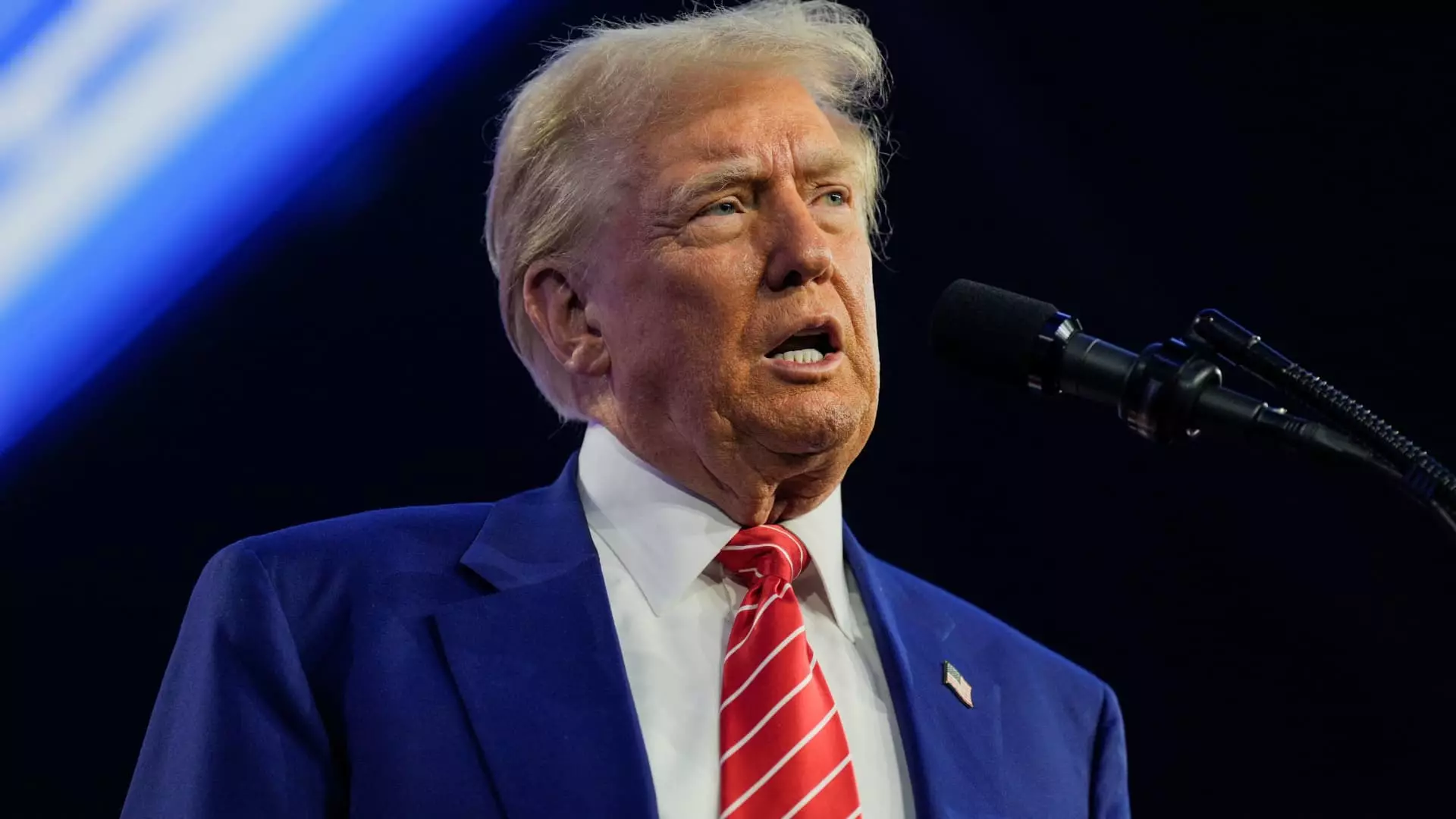The ongoing legal saga surrounding TikTok in the United States has captured the attention of lawmakers, legal experts, and millions of users alike. As the financial scale of social media platforms continues to grow, the intersection of technology, politics, and national security becomes increasingly fraught with complexity. The case in point is the Protecting Americans from Foreign Adversary Controlled Applications Act, now at the forefront of judicial scrutiny as President-elect Donald Trump raises a call for the Supreme Court to pause the enforcement of a recent law that would effectively ban TikTok unless its Chinese parent company, ByteDance, divests its ownership.
This legal battle finds its roots in prior attempts by Trump’s administration to restrict TikTok due to concerns over national security. The app, which boasts a massive user base across the U.S., has raised alarms regarding potential data harvesting by the Chinese government and how such access could result in content manipulation. The Protecting Americans from Foreign Adversary Controlled Applications Act, a bipartisan initiative signed into law by President Joe Biden, seeks to mitigate these risks by mandating ByteDance’s divestment or facing a potential ban of the app within American borders.
Despite the intentions behind the law, Trump’s current legal maneuver raises critical questions about executive power, the implications of potentially politicizing legal proceedings, and the fundamental rights enshrined in the Constitution. Trump’s appeal for a stay on the Act’s implementation reflects not only a desire to safeguard the app but also an acute awareness of the political calculus involved in this scenario. His legal representative, D. John Sauer, indicates that Trump’s administration is uniquely positioned to navigate a politically sensitive resolution to this ongoing debate.
As the Supreme Court prepares to deliberate on this pressing issue, the implications extend far beyond mere legal technicalities. By calling for a pause in the upcoming ban, Trump is advocating for a reconsideration of an approach that dives deeper into negotiation and potentially restructuring the relationship between American firms and foreign-owned applications. The court’s decision will determine whether Trump’s incoming administration can negotiate a diplomatic solution that might satisfy both national security interests and the desire to preserve what many users view as an integral platform for communication and creativity.
In December, after several years of opposition, Trump famously acknowledged a “warm spot” for TikTok, hinting at a possible pivot in his stance. This indicates a nuanced understanding of the platform’s cultural significance, especially among younger demographics, which could influence forthcoming political discourse. If the Supreme Court decides to halt the implementation of the law, it may open the door for an unprecedented political strategy that merges foreign policy, corporate interests, and social media influence.
The juxtaposition of national security concerns against the First Amendment rights of TikTok’s users presents a modern quandary that legal scholars are keen to explore. On one hand, U.S. government officials argue for the necessity of safeguarding citizens’ data and preventing foreign interference in domestic affairs. On the other hand, the arguments presented against the law underscore that a blanket ban could infringe upon free speech rights, raising fundamental questions about censorship and the extent of governmental control over digital platforms.
The Justice Department has consistently reinforced the government’s stance, emphasizing the legitimacy of national security concerns, even as TikTok vehemently opposes the law on free expression grounds. The outcome of this litigation will have longstanding ramifications—not only for TikTok users but also for how technology companies operate within the U.S., as it casts a spotlight on the borders of governmental authority and personal liberties.
As the Supreme Court gears up for oral arguments, the TikTok trial represents more than just a single app’s fate; it encapsulates the broader narrative of technological evolution intertwining with geopolitics and civil rights. The decision to either uphold or overturn the ban on TikTok will resonate within legal circles and civil society, shaping future interactions between democracies and foreign entities in an era increasingly dependent on technology.
Whatever the court rules, the case is emblematic of an ongoing struggle to balance national interests with global digital networks, reflecting the complexities of a world that is becoming ever more interconnected while contending with inherent risks associated with that connection. The impending judgment will not just decide TikTok’s future but fortify the principles guiding interactions between governance, technology, and the rights of individuals within the digital age.

